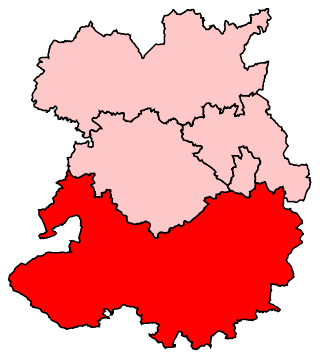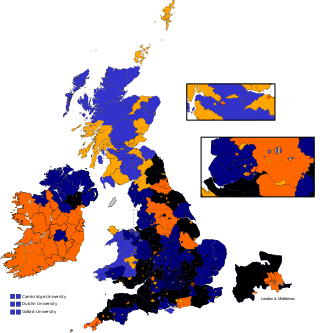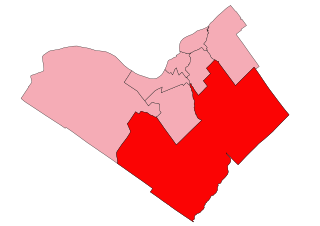External links
| | This article about a journal on politics or political science is a stub. You can help Wikipedia by expanding it. See tips for writing articles about academic journals. Further suggestions might be found on the article's talk page. |
| Discipline | Political science |
|---|---|
| Language | English |
| Publication details | |
| History | 1982–present |
| Frequency | Triannually |
| ISO 4 | Find out here |
| Indexing | |
| ISSN | 0264-2824 (print) 1750-0206 (web) |
| Links | |
Parliamentary History is a peer-reviewed academic journal that covers the "history of parliamentary institutions in the British Isles".

Constitutional monarchy, also known as limited monarchy, parliamentary monarchy or democratic monarchy, is a form of monarchy in which the monarch exercises their authority in accordance with a constitution and is not alone in making decisions. Constitutional monarchies differ from absolute monarchies in that they are bound to exercise powers and authorities within limits prescribed by an established legal framework. A constitutional monarch in a parliamentary democracy is a hereditary symbolic head of state who mainly performs representative and civic roles but does not exercise executive or policy-making power.

Hansard is the transcripts of parliamentary debates in Britain and many Commonwealth countries. It is named after Thomas Curson Hansard (1776–1833), a London printer and publisher, who was the first official printer to the Parliament at Westminster.

The Parliament of India or Indian Parliament, is the supreme legislative body of the Republic of India. It is a bicameral legislature composed of the Rajya Sabha and the Lok Sabha. The president of the Republic of India, in their role as head of the legislature, has full powers to summon and prorogue either house of Parliament or to dissolve the Lok Sabha, but they can exercise these powers only upon the advice of the prime minister and the Union Council of Ministers.

The Habeas Corpus Act 1679 is an Act of Parliament in England during the reign of King Charles II. It was passed by what became known as the Habeas Corpus Parliament to define and strengthen the ancient prerogative writ of habeas corpus, which required a court to examine the lawfulness of a prisoner's detention and thus prevent unlawful or arbitrary imprisonment.

Great Yarmouth is a constituency represented in the House of Commons of the Parliament of the United Kingdom since the 2024 general election by Rupert Lowe of Reform UK.

Orkney and Shetland is a constituency of the House of Commons of the Parliament of the United Kingdom. It elects one Member of Parliament (MP) by the first past the post system of election. In the Scottish Parliament, Orkney and Shetland are separate constituencies. The constituency was historically known as Orkney and Zetland.

Ynys Môn is a constituency of the House of Commons of the Parliament of the United Kingdom. It elects one Member of Parliament (MP) by the first past the post system of election. It is one of five 'protected constituencies' within the UK, with boundaries defined by the Parliamentary Constituencies Act 2020 to be to those of Isle of Anglesey County Council where there must be a whole number of MPs rounded up to the nearest whole number with these boundaries.

Lewes is a constituency in East Sussex represented in the House of Commons of the UK Parliament since 2024 by James MacCleary, a Liberal Democrat.

Ludlow was a constituency in Shropshire represented in the House of Commons of the UK Parliament.

Stafford is a constituency represented in the House of Commons of the UK Parliament since 2024 by Leigh Ingham from the Labour Party.

Ipswich is a constituency represented in the House of Commons of the UK Parliament since July 2024 by Jack Abbott of the Labour Party.

Exeter is a constituency composed of the cathedral city and county town of Devon represented in the House of Commons of the UK Parliament since 2024 by Steve Race of the Labour Party.

Gloucester is a constituency centred on the cathedral city and county town of the same name, represented in the House of Commons of the UK by Alex McIntyre of the Labour Party.
David William Black, was an Australian historian. He lectured and wrote extensively on Australian and Western Australian history, especially political history. He was a professor in history and politics in the School of Social Sciences and Asian Languages at Curtin University of Technology until his retirement in 2002, and was then professor emeritus. He was Chairperson of the Parliamentary History Advisory Committee, and a Parliamentary Fellow (History). He has had numerous publications and considerable media exposure in regard to parliamentary history in Western Australia.
East Grinstead was a parliamentary constituency in the Kingdom of England, the Kingdom of Great Britain, and the United Kingdom. It first existed as a Parliamentary borough from 1307, returning two Members of Parliament to the House of Commons elected by the bloc vote system. The borough was disfranchised under the Reform Act 1832, but the name was revived at the 1885 election when the Redistribution of Seats Act created a new single-member county division of the same name.
Cambridgeshire is a former Parliamentary constituency in the United Kingdom. It was a constituency represented by two Members of Parliament in the House of Commons of the Parliament of England then in the Parliament of Great Britain from 1707 to 1800 and in the Parliament of the United Kingdom from 1801 to 1832, when its representation was increased to three until it was abolished in 1885.

Westmorland was a constituency covering the county of Westmorland in the North of England, which returned Members of Parliament to the House of Commons of the Parliament of the United Kingdom.
Woodstock, sometimes called New Woodstock, was a parliamentary constituency in the United Kingdom named after the town of Woodstock in the county of Oxfordshire.

Humber River—Black Creek is a provincial electoral district in Ontario, Canada, that has been represented in the Legislative Assembly of Ontario since 1999. Prior to the 2018 election, the riding was known as York West.

Carleton is a provincial riding in Ontario, Canada. It was created in 1867 at the time of confederation and lasted until provincial redistribution in 1996. In the 1999 provincial election it was redistributed into Nepean—Carleton and Lanark—Carleton. In 2007 it was abolished into Carleton—Mississippi Mills and Lanark—Frontenac—Lennox and Addington.